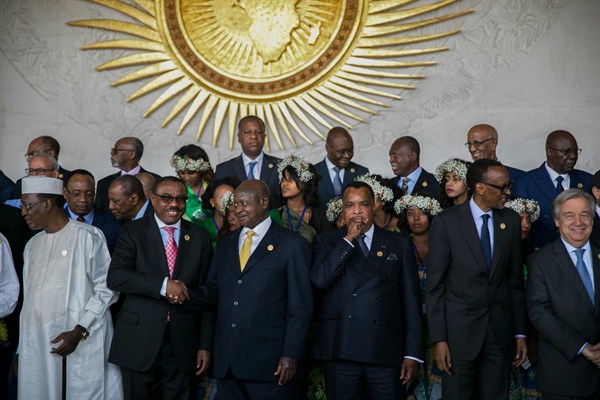Editor’s Note: Every Friday, Associate Editor Robbie Corey-Boulet curates the top news and analysis from and about the African continent.
This week’s African Union summit—which brought heads of state to Addis Ababa, Ethiopia, on Monday and Tuesday—featured debate on how best to accomplish one of the main recommendations from its reform commission: curb the body’s reliance on outside donors. Julian Hattem reported for WPR in February that the African Union’s expenses are expected to total $439 million this year, of which just 26 percent will be covered by African nations, undercutting leaders’ claims that it pursues “African solutions to African problems.” As Cote d’Ivoire’s president, Alassane Ouattara, put it this week, “We can’t say to non-African donors, ‘We are autonomous,’ and say at the same time, ‘Give us your money.’”
African heads of state have endorsed in principle the idea of imposing a 0.2 percent tax on goods arriving from outside the continent, though Radio France Internationale says not everyone is actually on board. Among the countries that have voiced reservations are the continent’s three biggest economies: Nigeria, Egypt and South Africa. Geoffrey Onyeama, Nigeria’s foreign affairs minister, said this week he expected it would “take a bit of time to reach 100 percent consensus” on the tax question. In the meantime, President Robert Mugabe of Zimbabwe stepped in with something of a stopgap measure. In a bid to address “donor dependency syndrome,” he presented the African Union with a check for $1 million reportedly raised by the sale of livestock, including 300 cattle from his own herd.

